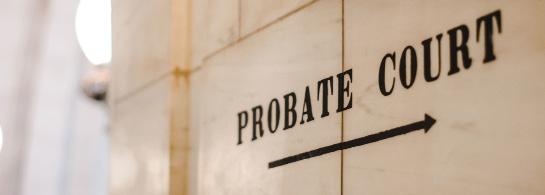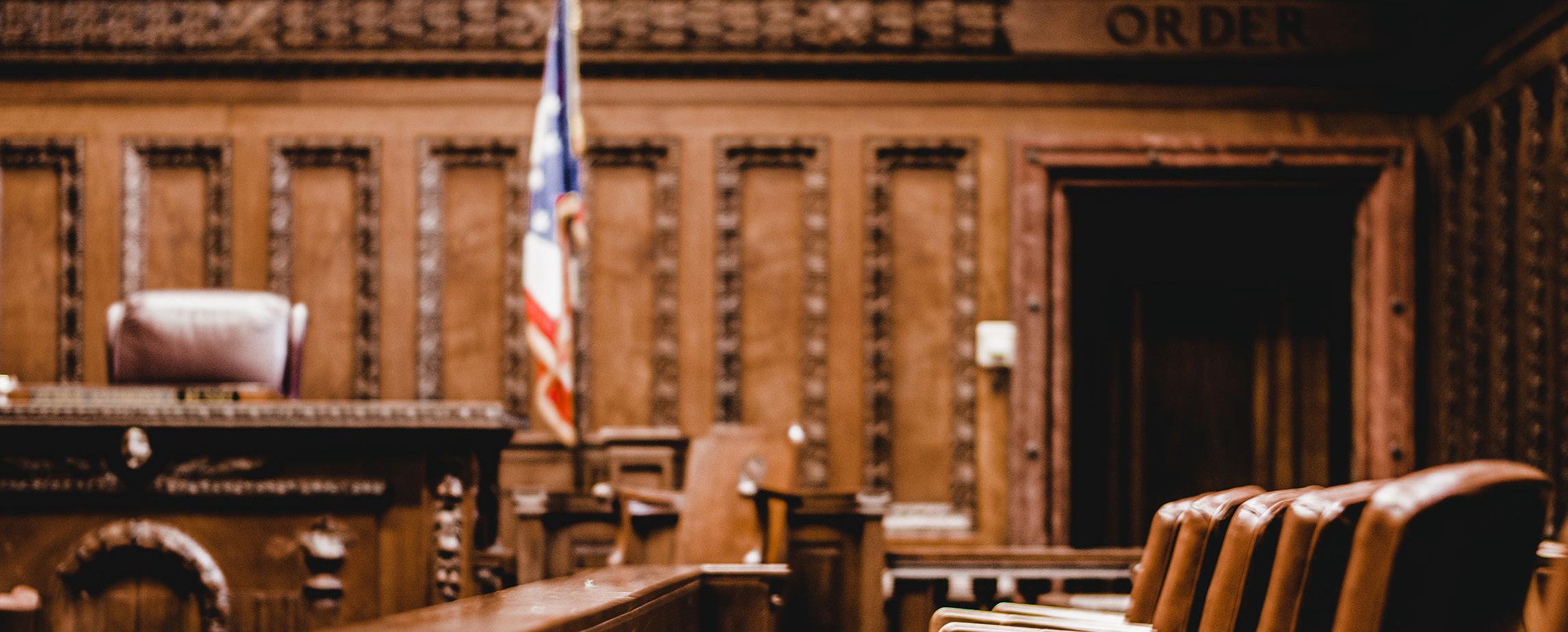Should I Challenge My Inheritance?
A GUIDE TO THE KEY CONSIDERATIONS OF INHERITANCE DISPUTES





As statewide chair of Reminger’s Estates and Trusts Practice Group, Adam has an incredibly broad working knowledge of the areas of law that touch upon the disputes he routinely handles, coupled with a rare ability to quickly capture the factual essence of your claim. Adam has served as lead trial attorney in hundreds of successfully pursued/defended estate and trust disputes.
He has tried many high stakes cases to verdict: will and trust contests, executor and trustee removal actions, interpretation of wills and trusts and ambiguities, accountings, breaches of fiduciary duty, and claims seeking to void gifts and beneficiary designations.




Reminger Co., L.P.A. is a full-service law firm with fifteen offices throughout the Midwest. With more than 150 attorneys collectively, Reminger’s practice areas include all aspects of litigation, along with corporate, tax, real estate and probate matters. Our fundamental objective is to obtain the best possible results for our clients in the most practical and efficient manner possible.
For over forty years we have represented executors, administrators, trustees, heirs, beneficiaries as both plaintiffs and defendants in lawsuits and contested proceedings involving trusts and probate estates. These cases include will contests, claims of intentional interference with expectations of inheritance, breach of fiduciary duty cases involving fraud or negligence under the Ohio Trust Code and Ohio Probate Law, as well as the misuse and/or abuse of powers of attorney.

Call it what you want: elder abuse, financial exploitation, undue influence. Family members, caretakers, and scam artists, for the potential of a dollar, will undoubtedly work to steal your inheritance. Many people have told me, when they hear what I do for a living, that when a person signs a will, designates a beneficiary, or signs a trust, there is nothing that can be done about it. The general belief that all wills, trusts, and beneficiary designations are not subject to challenge is a great fiction perpetrated on loving children who find themselves disinherited for reasons that don’t make sense.

I am a lawyer who litigates inheritance rights with hundreds of cases under my belt. I have brought claims on behalf of good and caring kids. In deposition and trial, I demonstrate that the circumstances leading to the disinheritance was instigated by deplorable people insistent on
gaining unearned financial wealth for reasons spanning from greed to self-entitlement and, yes, simple jealousy.
On behalf of good children, I have defended baseless claims brought by undeserving children who, for obvious reasons, were excluded from a will or trust. Believe me when I tell you that some wills, trusts, and beneficiary designations are executed because of bad conduct and when the bad conduct can be demonstrated, a jury or a judge, will gladly set things right.
In this guide, I will review the key considerations to make when deciding to dispute your inheritance.

Not all disinherited children are sympathetic human beings worthy of court intervention. Some children truly do disappear, leaving their parents to fend for themselves. Those children have little information as to what occurred, and worse, cannot demonstrate the existence of a loving, albeit long distance relationship for reasons of lack of contact. Juries and judges care about the wishes of the testator (parent), and if a child is going to come to court demanding that a gift, will, trust or beneficiary designation be voided, he or she should have proof of a relationship such as phone calls, e-mails, letters, or text messages.
The stark truth is that a child who has been disinherited will have a much harder time proving that a will is the product of undue influence if a jury believes that the parent had good reason to disinherit the child. Lack of contact, misuse of the parent’s assets, and an overall disagreeable nature of the child, as examples, can be used to show that the decision to disinherit was of the parent’s own free will and volition.
The test for undue influence is not complicated: the disinherited child needs to prove that the parent, by reason of physical or mental conditions or other dependency, is susceptible to the exercise of undue influence. Medical conditions, such as dementia, Parkinson’s, depression, memory loss, or simply the inability to write checks or pay bills without assistance, can form the basis to establish a loved one is susceptible to manipulation.
If a person who engages in the act of transferring wealth via lifetime transfer or testamentary vehicle (such as a will or beneficiary designation) is susceptible, then the disinherited child must prove that the bad actor had the opportunity and did, in fact, exercise undue influence over the grantor/testator/settlor. The elements of the “cause of action” of undue influence, however, only describe the legal rules and do little to inform as to what kinds of facts are helpful to prove or disprove an undue influence claim.
Undue influence is, at its core, the act of convincing a person through inappropriate means to provide benefit to the person benefiting from the conduct. Some courts have described the conduct as that which subverts the mind of a person susceptible to the influence. All transfers are the product of some influence and not all influence is undue.

A child, for instance, who stops over at mom’s house to see how she is doing and brings her a piece of chocolate cake, is not exercising undue influence. A will created for the stated reason that mom was thrilled that her daughter came over to visit will not be set aside on the grounds of undue influence. But, if that same child who comes with cake, and over coffee, shares a false tale about the disinherited person in the guise of claiming an inheritance, then the act of influence could be demonstrated to be undue.
The more fragile the donor, the less evidence that might be needed to successfully challenge an act of disinheritance.

Proving bad conduct, sufficient to overturn a will, is not always easy. Most often, the conversations that lead to disinheritance are held in private. Further complicating a case, the person who was the subject of the exploitation is usually deceased or so far gone mentally, that establishing the bad conduct requires very skilled advocacy.
Making it even more difficult to establish a claim, particularly in a will or trust contest, a lawyer or other professional is usually available to testify that the donative instrument (will or trust or beneficiary designation) was the product of the parent’s own free will and volition. When one considers these factors: lack of direct evidence and a disinterested attorney supporting the transaction, it is easy to see how the wrongfully disinherited can feel hopeless and abandon an investigation or claim.
Rest assured, as case law is replete with examples of juries and judges that have found the donative instrument invalid regardless of the testimony of a “disinterested” attorney, or “disinterested” banker, or the professions of innocence by the child, caregiver, maid, or neighbor who benefited from the conduct. The practical reasons why
wills, trusts, gifts, or beneficiary designations get set aside is if a jury can, if shown the best circumstantial evidence in the context of the human who signed the will and in the context of the child who was disinherited, intuit when the transaction was bad or unnatural.
Other types of evidence that can be persuasive include: the drafting attorney’s notes, calendar, appointment log, drafts of the document, prior instruments and connection between the drafting attorney and the suspected bad actor. Phone records, social media posts, visitation logs at a hospital or nursing home, and home surveillance footage can also be telling.
Things as simple as the personal knowledge of the testator’s close friend, the testimony of a personal banker, and the conduct of the decedent leading up to and around the challenged change can also be very persuasive to the minds of a judge or jury. More evidence is almost always better than less.

Is the beneficiary a person in the trust or confidence of the donor? A person who is trusted is in the position to influence. If a fiduciary or confidential relationship can be established by factual evidence, then a skillful attorney who understands the concept of shifting evidentiary burdens, can force the recipient of the person in the position of trust to show that their conduct was free from undue influence. In essence, a rebuttable presumption that undue influence was exercised is created when a fiduciary or confidential relationship can be shown and related to the transaction at issue.
Is the transaction unnatural? A transaction that falls outside the expected and known relationships of decedent will be, generally, scrutinized more deeply. But establishing or defending a claim that the transaction was unnatural requires the ability to factually build context through skilled advocacy such as questioning and story building. For instance, a will that benefits a maid, as opposed to a child, may seem unnatural on its face, but if the relationship is longstanding and based on friendship and respect, then it could be demonstrated to be natural and expected.
• Acts of Procurement – Did the beneficiary assist in the procurement of the will? Facts such as locating and making a connection between the settlor/testator/donor and the lawyer or making sure the person gets to the lawyer’s office to sign the will or trust, would be assisting in the process in which the beneficiary benefits.
• Creating a siege mentality – A bad actor, intent on stealing your inheritance, often creates a false construct wherein the target is led to believe that the world is out to get the person or his/her assets and that the person who ultimately benefits is the savior. This kind of manipulation is often seen when the testator has a fear of going into a nursing home and the beneficiary works to convince him that the “bad child” will stop at nothing to put the testator into a nursing home, which would happen but for the intervention of the beneficiary.
• Isolation – Through acts of control, the beneficiary works to sever relationships with the parent from those who have been in that parent’s circle of life. Often, we see circumstances where the testator is moved to new lawyers, new doctors, and seems to never be available to answer the phone or come to the door. The bad actor will typically, but not always, move in with the benefactor and screen calls and refuse to allow for private conversations.
• Financial exploitation – Greedy people who seek to claim inheritance destined for others are often unable to keep their hands off the money. It is not unusual to see gifting or excessive and uncharacteristic cash or teller withdrawal.
• Confusion and financial gymnastics – It is common to see the creation of multiple bank accounts and to see inter-account transfers. These transfers are often done to confuse and disguise from the owner that assets are being manipulated, stolen, or the extent to which any particular object of affection will
receive. Frankly, if the owner gets confused, they might falsely believe that the person being disinherited is being provided for, thus discounting the act of disinheritance.

• Recent death of a loved one – Grief and depression go hand in hand with need and dependency. A person who is dependent is particularly susceptible to the exercise of undue influence.
• Abrupt changes to a long-established estate plan – An estate plan changed for reasons that seem nonsensical or inconsistent with the true relationships the testator has with members of his family should be highly scrutinized. Sometimes, the rationale for the changes are irrational and based in false beliefs. Often, the changes are coupled with new lawyers who lack knowledge of the client’s history and who have failed to investigate the reason for the change in attorney.
The red flags described are not exhaustive. If they, or other incidents of wrongdoing, are present then the existence of them can be used to demonstrate undue influence even if there is no direct evidence of the interchanges between the beneficiary and benefactor. Great skill is necessary to establish the context of wrongdoing or the fidelity of the transactions at issue. If a lawyer drafted the plan, his or her credibility is crucial to upholding or crashing the plan. You want a lawyer who has investigated lawyer estate planning files and knows how to attack their credibility through fact gathering and cross examination.




In your heart, you believe your parent would never willingly disinherit you. Suppose that your father was suffering from infirmities that impacted his judgment and cognition. He relied on the assistance of a neighbor, caregiver, friend, or sibling and trusted that person who ended up with an unnatural share of the inheritance. You tried to reach your father by phone or visit, but you were not allowed to communicate with him outside the presence of the caregiver, if, of course, you were able to speak with your father at all. When you called, you were told he is sleeping or when you visited you were told that he was not well and didn’t want to take visitors. Your father has now died and, not surprisingly, no one is forthcoming with a last will and testament. When one is produced, you learn you have been disinherited. This type of scenario is something we encounter frequently.
You are wondering: do I pull the trigger and hire an attorney? Only you can answer that question. Even if you have a great case, my view is that you need to be armed with information necessary to make an informed decision. Included in that equation are the necessary factors of value weighed against cost of pursuit.
Do you have any sense of the value of your case? To assess value, I typically play a game with my prospective client called “if you are right”. The game is designed to help a client see past the complicated nuances of the case and to enable a focus on the economics. Basically, the pain and emotion of who did what and why you were disinherited is reduced to background noise and the value of the case comes into focus. Playing this game will help you make an informed decision about whether to spend time, money, and emotion to pursue and prove you were wrongfully disinherited. Basically, we pretend that you will win the case and ask, “if you win, what do you get?”
Many of our clients have been kept in the dark about their parents’ wealth and, consequently, they have no real information to assess value. The lack of specific information does not necessarily mean you lack information to form opinions of probable and potential value.
If you are making decisions on probable or potential value, you must be prepared for the potential that your understanding of value could be based on bad or misleading information.
to consider when estimating value of the case without direct information:
1. Historical knowledge of the decedent’s employment. Was your parent a doctor, lawyer, factory worker? If they were in a high paying profession, that is a positive indication of value.
2. Did your parent own a home and are there records relating to value available online in the form of tax values? Similar indications could be knowledge of a recent inheritance, lawsuit settlement or lottery winnings.

3. Was your parent a frugal person who tended to save their paychecks?
4. Has there been significant medical or long-term care expenses, or other spending habits that would reduce a likely inheritance?
After exploring the potential value of the case, you’ll then want to analyze how that value translates into an amount to which you would be entitled if you win a case.
You can be blinded by “high value” if you don’t consider what is the best-case scenario of your share of the value. Simply put, you need to understand your potential share of the inheritance if you were to pursue and win a case.
To illustrate this question, if you saw a pre-death bank statement demonstrating $500,000 in assets, you might think there is a small fortune at the end of the rainbow. The value, of course, is reduced if the share gets divided 10 ways, such as if there are 10 children that would inherit equally if you win your case. When you consider $500,000/10 = $50,000, the pot at the end of the rainbow is smaller. If I told you that the cost of pursuit through trial could equal $50,000, would you still decide to pursue the claim?
The ability to assess value, particularly when you have imperfect or no information is an incredibly complex calculation. It includes, but is not limited to:
• The share you would receive if successful.
• The cost of obtaining that share, such as attorney fees, expert fees, document retrieval and third party costs such as depositions and transcripts.
• The likelihood of success which, necessarily includes the chance that you lose.
• The likelihood that the facts are such as would lead reasonable people to settle
claims at some agreed value.
You also have to expect that your share will be diminished by the costs intrinsic to the asset. For example, if the end of line asset to be recovered is a half interest in the home, to realize the benefit of the claim, the house will need to be sold and the costs of sale will diminish the final value of the asset from which the value of your share is calculated.
It is necessary to assess both value and bestcase scenario for you to make an informed decision about whether to pull the trigger and retain counsel. Now that you have explored value, no evaluation can be complete without understanding the variety of claims that need to be brought, that if you are successful, are needed to realize your share of the inheritance.
An experienced probate attorney has a working knowledge of the complicated path to recovery necessary to help you assess cost. One thing we cannot do, however, is guarantee cost or time as there are so many unknown factors that go into predictions that we cannot know until we get into the case.
Factors out of our control include the response of the opponent. Some opponents refuse to cooperate and place roadblocks at every avenue to our attempt to gather information. We could write a letter and get no response, or we might file suit and the opponent evades service. When the opponent throws up roadblocks, the costs increase relating to the escalating process necessary to employ to get actionable information. With that said, the options as to how to compensate counsel are generally as follows:
1. Contingency Fee – A contingency fee is, in essence, a risk sharing arrangement. If the lawyer takes the case on contingency, he or she assumes the risk of loss. The lawyer, on contingency, will invest their time, and if the case proves unsuccessful, bears the risk of loss. On the other hand, the client, while not having the risk of loss, bares the risk that the case will resolve quickly. For instance, if you agree to contingency fee and the opponent offers a quick, high value settlement, then the attorney would have earned a larger fee then they might have earned on an hourly rate. Thus, there are some circumstances when agreeing to a contingency fee can cost you more, and maybe substantially more, than would an hourly rate. The size of the contingency depends on the potential value and time commitment involved in the case. For lower value cases or expected labor intensive cases, the contingency will be larger than they may be if the cases are higher value with lower expected time commitments. It is not unusual to see a range of one-third or one-half more.
2. Hourly Rate – Rates vary depending on skill set. It is a mistake to think a higher hourly rate translates to higher costs. When you hire a skilled attorney with substantial knowledge and experience, less time is typically spent on issues that the lawyer intuitively understands without the need for research. Additionally, you want to know whether appropriate work will be delegated to people who work at lower hourly rates, such as paralegals, law clerks, or associate level attorneys.
3. Retainers – Attorneys will often quote a retainer to be paid and held in the attorney’s escrow account. When the attorney bills the time, the retainer may be used to pay the bill. In some circumstances, the attorney will require the client to keep the money on retainer and to pay the bill from additional funds. If the representation is terminated and the retainer has not been exhausted than the client will get a refund of the unused portion of the retainer. Usually a lawyer requires a retainer to protect that the fee earned will be paid. The cost of the retainer depends on the particulars of the case.
4. Hard Costs – In order to pursue a claim for undue influence you can expect out of pocket, third party costs. In this category, you might see court filing fees, court reporter costs, the fee for purchasing transcripts, expert witness fees, fees charged by financial and medical institutions to gather financial and medical records, costs to serve subpoenas, and other miscellaneous expenses that are incurred in addition to legal fees.
Deciding to pursue a claim, not only involves the economic considerations but emotional as well. Many clients approach the question of retaining counsel as a matter of “principal” which involves an entirely different calculation altogether. Often a client lacks sufficient information to accurately assess value, but still believes, based on the soft factors, that taking a deeper dive is worth the cost. Many of our clients have been comforted in paying some amount of attorney fees, if only to gain the value of knowing what happened. When you contact counsel, get a sense about what they think about value.

“Probate Lawyer” is a shorthand term frequently used to describe a lawyer who works in the field of estates and trusts. Historically, when assets passed to the next generation of beneficiaries and heirs, the assets flowed through the probate courts. Lawyers who worked to help administer those assets worked in the probate courts. Over time, the probate courts evolved to handle more than administrative matters. Similarly, will substitutes, such as beneficiary designations and trusts, came into power as the prominent mechanism controlling the manner assets would transfer to the next generation.
Therefore, a “probate lawyer” typically handles a wide array of matters related to the transfer and administration of a person’s assets until it gets into the hands of the heir or beneficiary. The range of “probate lawyer” work can vary significantly, from estate planners, who prepare documents, like wills, trusts, powers of attorney, etc., to probate, trust and guardianship administration attorneys, who counsel fiduciaries on procedure and process, to a probate litigator.
Whenever assets transfer under questionable means, a probate litigator may pursue or defend such claims. Whenever the decision making or conduct of the executor, trustee, or guardian comes into question or exceeds the
parameters of reasonable discretion, a probate litigator will defend or pursue challenges to such conduct. If a trustee, executor, or agent under a power of attorney misuses assets under their control, a probate lawyer will, on behalf of an affected party, seek to obtain an accounting and recovery of those assets.
As you can see, the term “probate lawyer” can mean a whole slew of things and not all probate lawyers have all the skills necessary to handle each type of claim or situation. For instance, an estate planner may have never seen the inside of the courtroom and would likely not have a working knowledge of the rules of civil procedure, rules of evidence, or have ever taken a deposition. Estate planners, though probate lawyers, for those reasons, may not be particularly suited to litigate a probate case. In fact, the attorney who drafts a probate instrument that is subject to a dispute is usually a key witness. Similarly, a “torts” lawyer such as a person who handles car accidents or medical negligence claims, who has trial skills, may have limited understanding of the “world of probate.” Such trial lawyers would not have a working knowledge of “probate process,” the principles of estate or trust administration, or an understanding as to why or how estate planning documents are written or administered under principals commonly understood by probate lawyers.
I have developed a few principles that I consider important in the search and retention of a lawyer if I had a problem for which I needed representation:
1. Sophistication - I want a lawyer with a sophisticated working knowledge of the subject area. For instance, a doctor or hospital would hardly hire the greatest patent or corporate lawyer to defend the hospital on a medical negligence claim. Nor would the same hospital hire a medical negligence lawyer to handle an employment or workers’compensation claim. The subjects are so vastly different that the trial skills will not make up for the lack of fundamental subject matter knowledge. In the concept of probate matters, as broadly defined, an estate planner who has never engaged in litigation is not likely suitable to litigate a probate case. Though some larger firms will employ estate planners in the litigation process, it is usually for the purpose of lending their probate knowledge to a litigator within the firm who usually handles other types of litigation.
2. Honesty - I want a lawyer who tells it like it is. I remember early in my practice when one of my mentors was faced with a client who wanted my mentor to handle the litigation exactly as the client wanted it to be pursued. Essentially, the client
wanted my mentor to discard his decades of experience in favor of strategy that was destined to fail. The client had, for more than a year, gotten nowhere with their strategy, and I was stunned when my mentor politely pointed that out. He left the client with a couple of options: try it as suggested by the professional or find a different professional. While I have seen some lawyers concede to their clients’ demands about how to pursue the case, I believe you hire the lawyer to provide advice and guidance. While you will be the ultimate decision maker, you want a lawyer that will tell you the truth about your case – the good, the bad, and the ugly as they say. If you are looking for a glad hander, then you should probably go elsewhere.
3. Practicality - I want a lawyer with common sense. I have seen it at work many times, a lawyer who will dive into the most picayune, least-relevant issue in the case and get stuck in that space at huge cost and absolutely zero benefit to the client. A lawyer without common sense can cite the rules from memory but have no sense of how the facts fit in those rules. Such persons will spin their wheels and get nowhere. You can tell when you are dealing with someone who struggles to identify the common-sense issues if they cannot identify the plan to get you to the finish line.
4. Fairness - If you find a lawyer that will guarantee you a victory, run. A good lawyer will give you a fair evaluation of your case. While the lawyer might not be able to answer all of your questions for lack of information, I think it is fair to expect your lawyer to give you answers and if, answers are not possible for lack of information, to tell you what information they need to be able to give you an answer. If an answer requires caveats, a good lawyer will share with you the weaknesses in the answer provided. A good lawyer knows that all contested legal matters involve risk and that risk can never be completely eliminated. Therefore, a good lawyer knows that no outcome is ever guaranteed.
5. Experience - Look for a lawyer with a good track record. While no lawyer can guarantee a victory, and past successes cannot predict future results, some lawyers tend to make it to the finish line successfully at a higher percentage than others. Sometimes the accolades and plaques are mere evidence of having won a beauty contest, but often the awards demonstrate some level of competence that other colleagues and clients have experienced in a duplicative fashion.
6. Economical - Look for a lawyer that fits your budget. The most well recognized lawyers are usually so busy that they can demand higher rates. The higher rates are often worth it, but at the end of the day, if the cost of the lawyer outpaces your
problem then, economically, you may later question why you hired the lawyer in the first place. A good lawyer will try to help you understand the impact of cost on your decision making so that you can make informed choices about the next steps to take. When economics are a concern, look for successful representation through a seasoned lawyer who has more junior lawyers to mentor. I was, years ago, a junior lawyer who was fortunate to be able to handle complex cases beyond my years, thanks to a strong mentorship program at Reminger. Our team carries on the tradition and works to create the next class of great lawyers who can help make your representation more efficient and effective.
I have had many clients ask me, if they were my child, what advice would I give. My answer is always thrown back at them – what do you expect in a lawyer?
You want someone that you can talk to and who you can trust to tell you like it is. You want someone who will listen to you and give you respect, but also push back with humanity. You want a lawyer that will help you stay on task and relevant to the problem so that time is not spent unnecessarily on things that do not have any impact on the problem at hand. You want a lawyer with the skills necessary to give you the best chance at success.
As long as there is death, greed, and dysfunction, there will be cases where people actively pursue money through undue influence. According to the U.S. Census Bureau, the number of Americans ages 65 and older is projected to nearly double from 52 million in 2018 to 95 million by 2060, and the 65-and-older age group’s share of the total population will rise from 16 percent to 23 percent. With our country’s aging population, and increasing incidents of Alzheimer’s and dementia, we are seeing a higher prevalence of financial exploitation cases. Per the National Adult Protective Services Association (NAPSA), seniors lose at least $2.6 Billion a year due to financial abuse, and possibly more due to unreported cases.

The rise of technology and access to online information has also led to more cases of financial exploitation. We have recently encountered online tutorials about how to go about stealing an inheritance.
There are many reasons a disinherited person might choose to retain counsel to assess whether there is reason or value to pursue a claim. Those reasons are not always financial, but we have found many clients get satisfaction in learning what might have been the reason or cause for the disinheritance. Therefore, even if it turns out that the cost of pursuit of a claim to conclusion is not economically practical, initiating an investigation might be worth it for you.
With 100 years of experience, our lawyers have been helping people in Cuyahoga County, Lake County, Summit County, Franklin County and other areas of Ohio solve complicated estate and probate problems. You can turn to Reminger’s experienced Probate and Trust Litigation Practice Group to address any dispute that has arisen around a loved one’s estate.

